WooCommerce is a powerful platform for online businesses, but managing inventory, orders, and other data can be a challenge. That’s where ERP (Enterprise Resource Planning) systems come in – they help you streamline your business processes by integrating data from various sources.
Integrating your WooCommerce store with an ERP system can save you time, reduce errors, and help you make better decisions. But with so many options out there, how do you choose the right one for your business?
In this post, we’ll share the 7 best options for WooCommerce ERP integrations for your business based on reliability, functionality and ease of use. We’ll also mention which types of businesses each integration is best for so you can make an informed decision.
Why Use WooCommerce ERP Integrations?
As the eCommerce industry continues to grow rapidly, more and more businesses are adopting WooCommerce as their preferred eCommerce platform. However, as your business grows, so does the complexity of your operations.
You may find yourself in need of more advanced functionalities. This is where a WooCommerce ERP integration comes into play.
Integrating your WooCommerce store with an ERP system brings numerous benefits for your business. Let’s take a look at some of them:
- Centralized Data Management – With an ERP system, you can centralize all your business data in one place, making it easier to manage and analyze. This saves you time and reduces the risk of errors.
- Automated Processes – An ERP system can automate several business processes, such as inventory management, order processing, and shipping. This saves you time and reduces the risk of errors.
- Improved Customer Experience – By integrating your WooCommerce store with an ERP system, you can improve your customer experience by providing accurate and real-time information about inventory, shipping, and order tracking. This helps build trust and loyalty with your customers.
- Scalability – As your business grows, an ERP system can help you scale your operations efficiently by providing you with the tools and data you need to make informed decisions. This helps you stay ahead of your competition and grow your business.
The Best WooCommerce ERP Integration Plugins
Below is a detailed list of the top WooCommerce ERP Integration options available. They’re all reliable and well-maintained so you can feel free to pick the option that suits your business best.
But as platinum-certified WooExperts, we have also given our recommendations as far as what size and type of business is optimal for each solution.
1. Odoo for WooCommerce
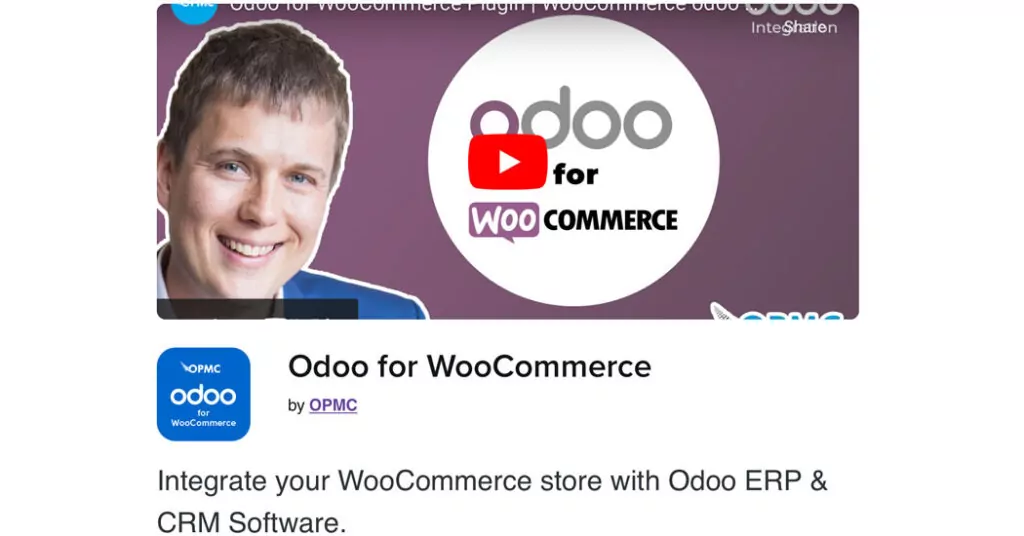
Odoo is an open-source enterprise resource planning (ERP) software that offers a suite of business applications. The Odoo for WooCommerce extension provides seamless synchronization of sales, inventory and customer data.
Best suited for: small to medium-sized businesses looking for an all-in-one solution to manage their sales, inventory, and accounting, as well as to integrate with other business functions such as marketing and customer service.
2. NetSuite Integration for WooCommerce
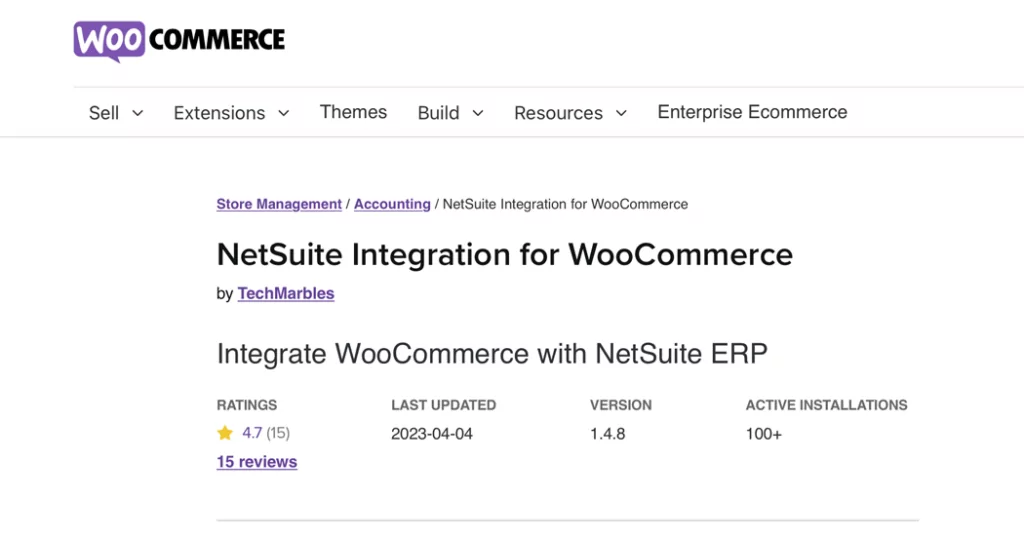
NetSuite is a cloud-based ERP software that provides business solutions for financial management, inventory management, and CRM. The NetSuite Integration for WooCommerce allows for real-time synchronization of data between the two platforms.
Best suited for: Businesses of various sizes, ranging from small startups to larger enterprises, looking to streamline their operations and enhance their online sales channels. It’s best for businesses that require a comprehensive ERP solution.
3. Quickbooks Sync for WooCommerce
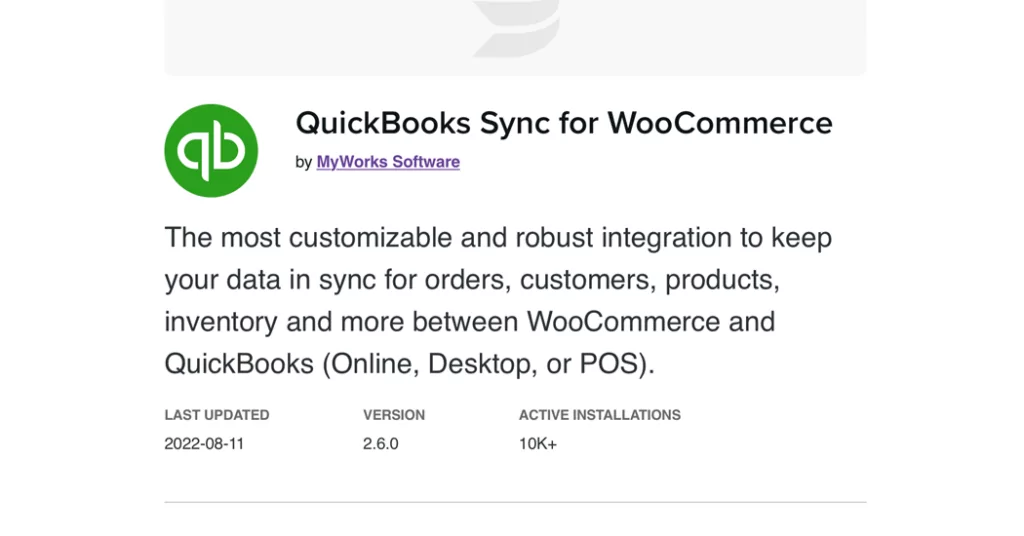
QuickBooks is a popular accounting software for small and medium-sized businesses, and the Quickbooks Sync for WooCommerce allows you to sync your sales data with your accounting software. You can automatically create invoices, track expenses, and manage your books from one place.
Best suited for: small to medium-sized businesses that use QuickBooks Online for accounting.
4. Integration of WooCommerce and Zoho Inventory
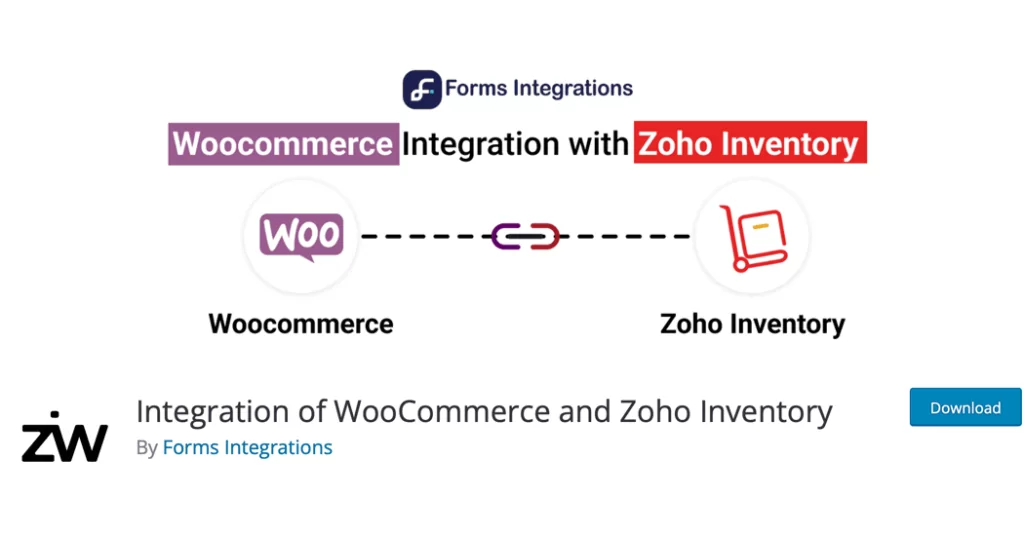
Zoho Inventory is an online inventory management software that allows you to track your inventory levels, sales orders and purchase orders in real-time. The Integration of WooCommerce and Zoho Inventory plugin lets you sync your inventory data between your store and your inventory management software. That way, you always know how much stock you have on hand.
Best suited for: businesses that need to track inventory levels across multiple channels and warehouses.
5. ShipStation Integration
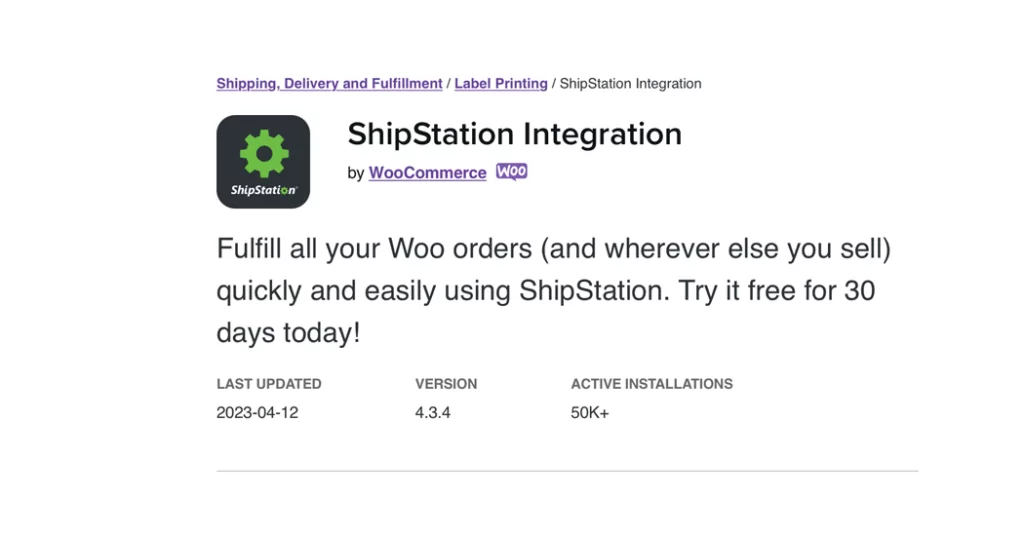
ShipStation is a shipping software that helps you manage your orders, print shipping labels, and track shipments. The ShipStation Integration for WooCommerce allows you to automate your shipping process by syncing your orders and shipping data between your store and your shipping software.
Best suited for: eCommerce businesses that sell physical products and need to manage their shipping process efficiently.
6. Brightpearl Integration for WooCommerce
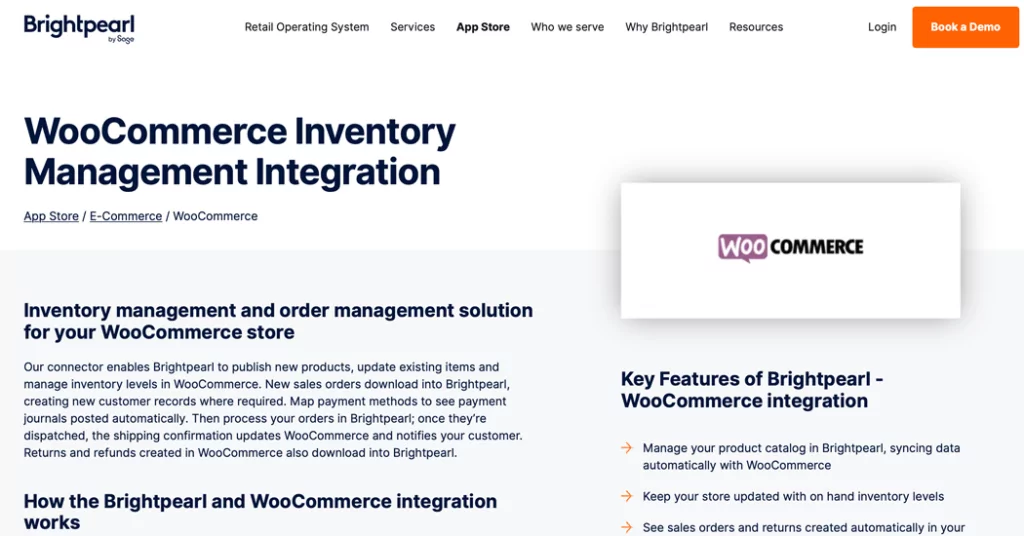
Brightpearl is an all-in-one inventory management, accounting, and CRM software for retail and wholesale businesses. The Brightpearl Integration for WooCommerce lets you sync your sales, inventory, and customer data between your store and your ERP system. With it, you can manage your entire business from one place.
Best suited for: retail and wholesale businesses that need a comprehensive ERP system to manage their entire business.
7. Sage 100 Integration for WooCommerce
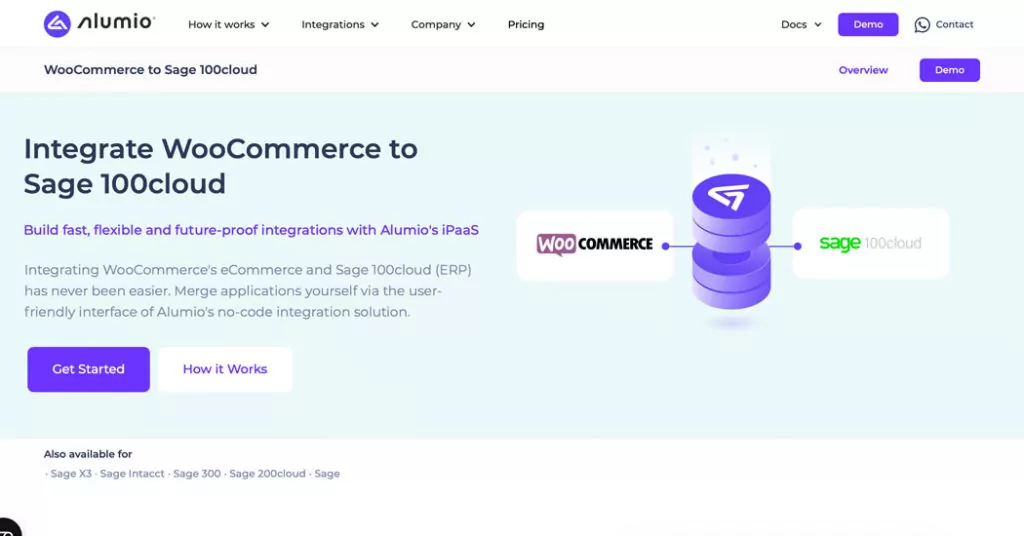
Sage 100 is an ERP software that offers accounting, inventory management and sales order processing features. The Sage 100 Integration for WooCommerce syncs your sales and inventory data between your store, and your ERP system. With this plugin, you can manage your orders and inventory more efficiently.
Best suited for: medium to large-sized businesses that need a comprehensive ERP system with advanced accounting features.
8. Custom WooCommerce ERP Integrations
If you can’t find an off-the-shelf WooCommerce ERP integration that meets your business needs, you can always opt for a custom solution. Progressus.io is a top WooCommerce development agency that specializes in custom development. It’s a core part of what we do.
We have worked with top companies such as Automattic, DHL, and Janovic, and can create a custom solution that fits your specific requirements. You can check out our WooCommerce Plugin Development page for more details.
We understand the importance of seamless integrations between different systems to ensure optimal efficiency and productivity.
With over a decade of experience in WooCommerce development, our team can help you streamline your operations, automate routine tasks, and gain valuable insights into your business.
We can create exactly what you need. You can automate your order fulfillment process, manage your inventory, and gain valuable insights into your business performance through customizable reports and dashboards. Just let us know your specific needs and we’ll take care of the rest.
Best suited for: Businesses that need a custom solution that is tailored to their unique needs.
Other ERP Solutions to Integrate with WooCommerce
The options listed above are all great for WooCommerce, but there are also other solutions that are also worth considering. Although they don’t already have a WooCommerce plugin to integrate them, we can certainly build one for you if you reach out to us for a quote.
Below are other top ERP solutions you could use for creating custom WooCommerce ERP integrations.
9. Microsoft Dynamics 365 Business Central

Microsoft Dynamics 365 Business Central is a cloud-based ERP system that can help you manage your financials, operations, sales and customer service in one place. It offers features such as inventory management, sales order management, purchasing and financial management.
Best suited for: mid-sized businesses that need a comprehensive ERP solution.
10. SAP Business One
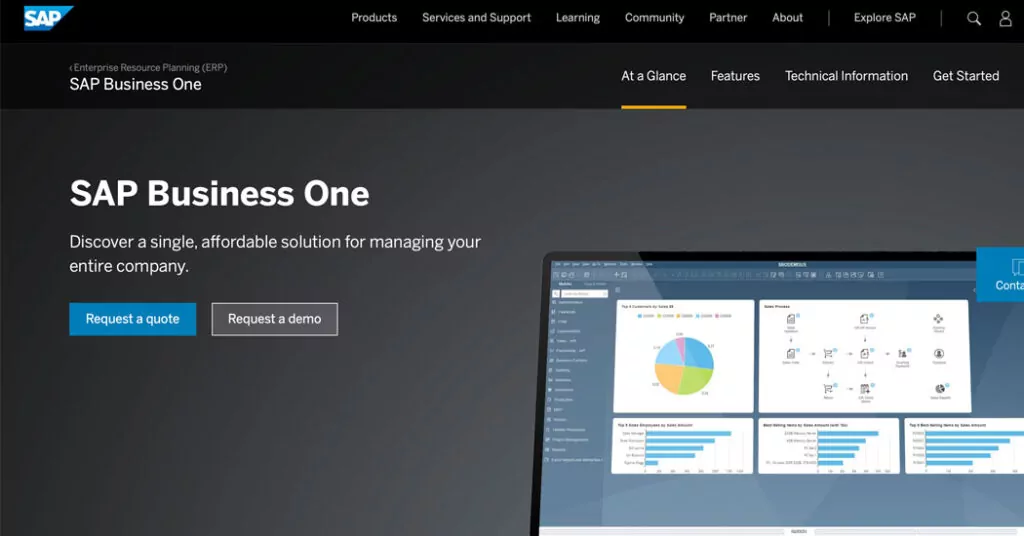
SAP Business One is an ERP system that can help you manage your financials, sales, inventory and production in real-time. It offers features such as accounting and financial management, customer relationship management (CRM) and supply chain management.
Best suited for: small to mid-sized businesses that need a scalable ERP solution.
11. Acumatica
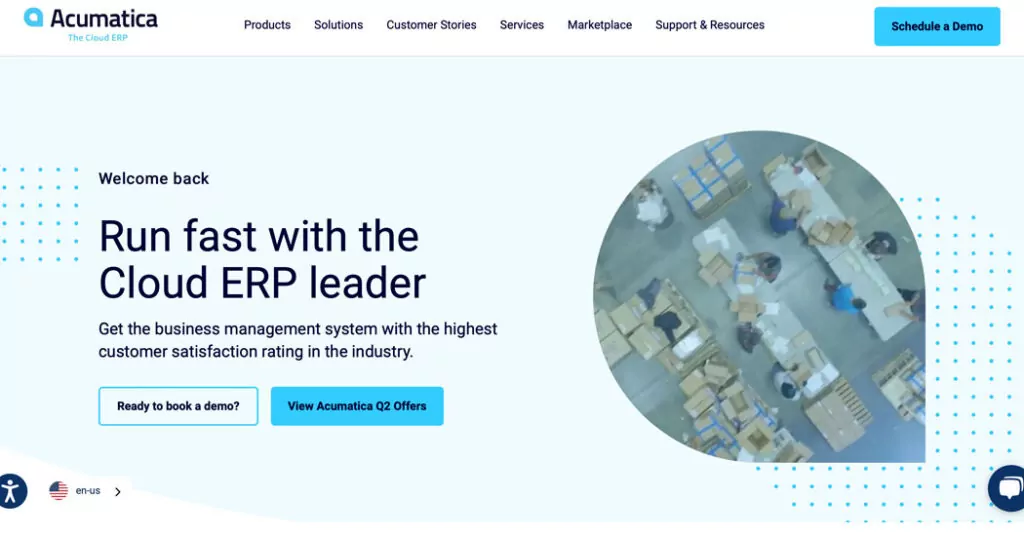
Acumatica is a cloud-based ERP system that can help you manage your financials, distribution and customer management. It offers features such as financial management, project accounting and inventory management.
Best suited for: mid-sized businesses that need a flexible and customizable ERP solution.
Other Ways to Streamline Your WooCommerce (Multisite) Store
There are so many ways you can streamline your WooCommerce store outside of ERP integrations, especially if you have a Multisite installation. There are many other plugins that can do the trick, depending on what your needs are for your business.
Check out these resources for more ways to streamline your WooCommerce (Multisite) store:
- Experts’ Top WooCommerce Inventory Management Plugins
- 12 Best WooCommerce Shipping Plugins Including Global Options
- How to Set Up WooCommerce Multisite with Stock Syncing
- 4+ Top WooCommerce Multisite Inventory Sync WordPress Plugins
- WooCommerce Multisite Order Sync: How to Add This and More to WordPress
- WooCommerce Multisite Product Sync Options for WordPress Networks
- 3+ Best WooCommerce Multisite Global Cart Options for WordPress
Wrapping Up
Choosing the right WooCommerce ERP integration can help you streamline your business processes, save time, and make better decisions.
integrating an ERP system with your WooCommerce store can be the key to scaling your business. We’ve reviewed the top most reliable WooCommerce ERP integrations, each with its own advantages and best use cases.
If none of these integrations fit your specific needs, reach out to us because we can create a custom solution for you.
Which WooCommerce ERP integration did you choose? Still need help deciding? Are there certain features that you’re looking for in an integration solution? Feel free to share your thoughts in the comments below.


